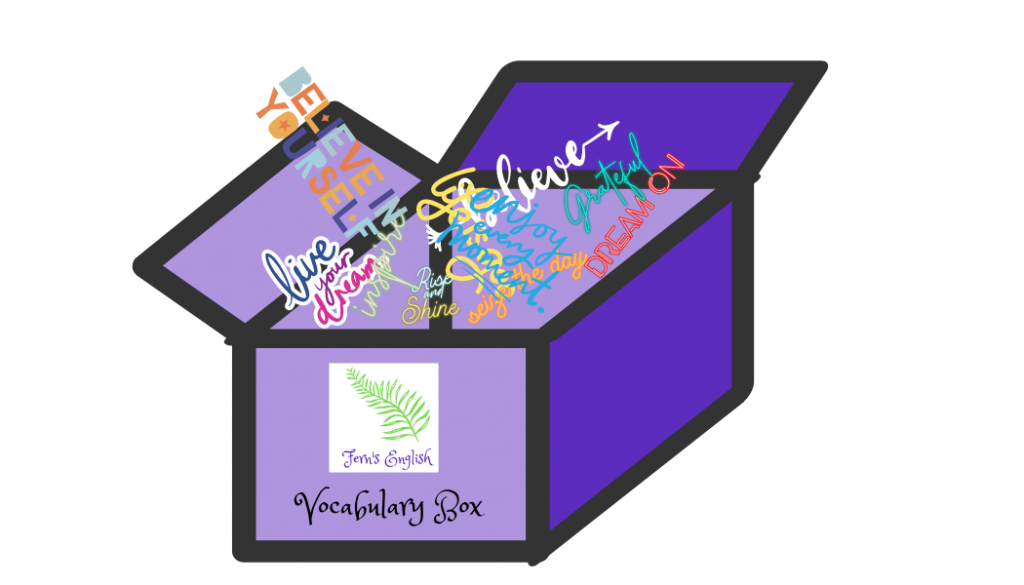We all know how important it is to build a good vocabulary bank in order to develop fluency in English. The more vocabulary you know, the less you will struggle to communicate in English.
I'm sure you've always been told "write the words in your vocabulary book" and that is very important - but do you do it properly?
Simply writing the word in English, with the translation in your own language is a start but it's not enough. You need to know how to use the word properly. I always recommend that you write the word, the definition IN ENGLISH, the translation into your own language and two or three sentences using the word accurately in context. If you're a visual learner, you can also draw or glue in a picture to help you remember the word.
A vocabulary book is a great place to start when you're trying to build your vocabulary bank but once you've written the words down, do you remember them?
The Problem
"How can I learn more vocabulary?"
If you have ever asked yourself or your teacher this question, then you are obviously aware of the need to do more but what can you do?
The Solution
You need a vocabulary box!
"What is a vocabulary box?"
It's really easy to create one - just grab a small box, jar or other container that you can keep on your desk. Every time you encounter a new word or phrase, write it on a piece of paper and drop it into your vocabulary box.
The Challenge
Every day, take out two or three pieces of paper and challenge yourself to explain the meanings to a friend or family member. Then use the words or phrases in sentences. Don't forget to put the words back in the box to use another day!
"What's the point?"
The idea is that the more you use a word or phrase, the more likely you are to remember it. If you can practice regularly, you will soon find that you absorb more vocabulary, understand the meanings and are able to use the new words in the correct context. This in turn will help to build your fluency.
Remember that it's important to use a vocabulary book as well as your vocabulary box, so that if you struggle to define the word you pull out of the box, you can check the meaning in your vocabulary book!
Final Thoughts
Of course, vocabulary boxes and books are only part of the solution - it's also a very good idea to have a monolingual (English only) dictionary and a bi-lingual (English-Your Language) dictionary to hand as well. The very best thing that you can do, however, is practice your English by speaking to native speakers on a regular basis. This will help you to absorb colloquial phrases and idioms that you might not come across otherwise - and if you can absorb these into your vocabulary bank, you'll soon find that your fluency improves!
#vocabulary #English #Fluency #fernsenglish #English #nativespeaker #englishforkids #englishforadults #englishonline #englishlessons

